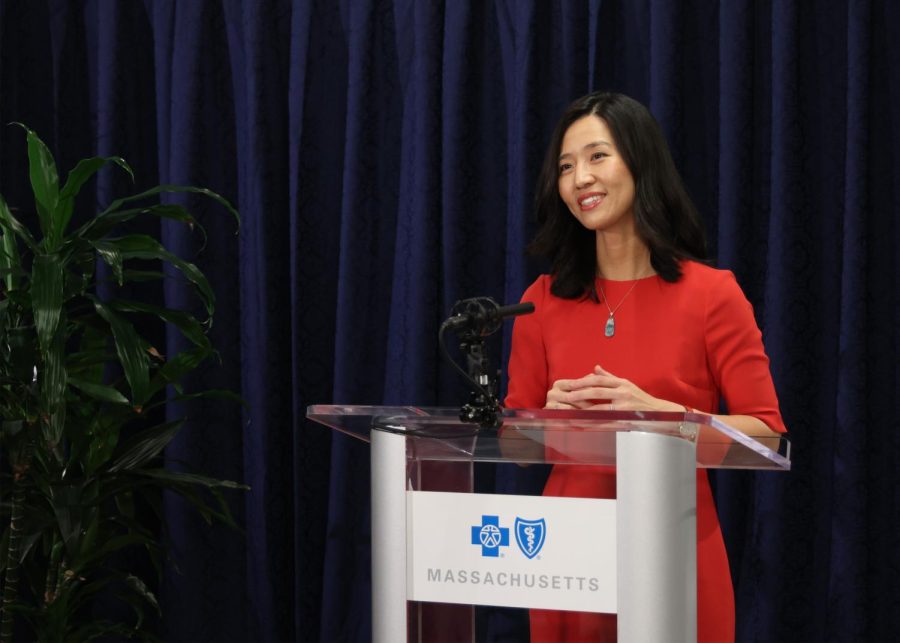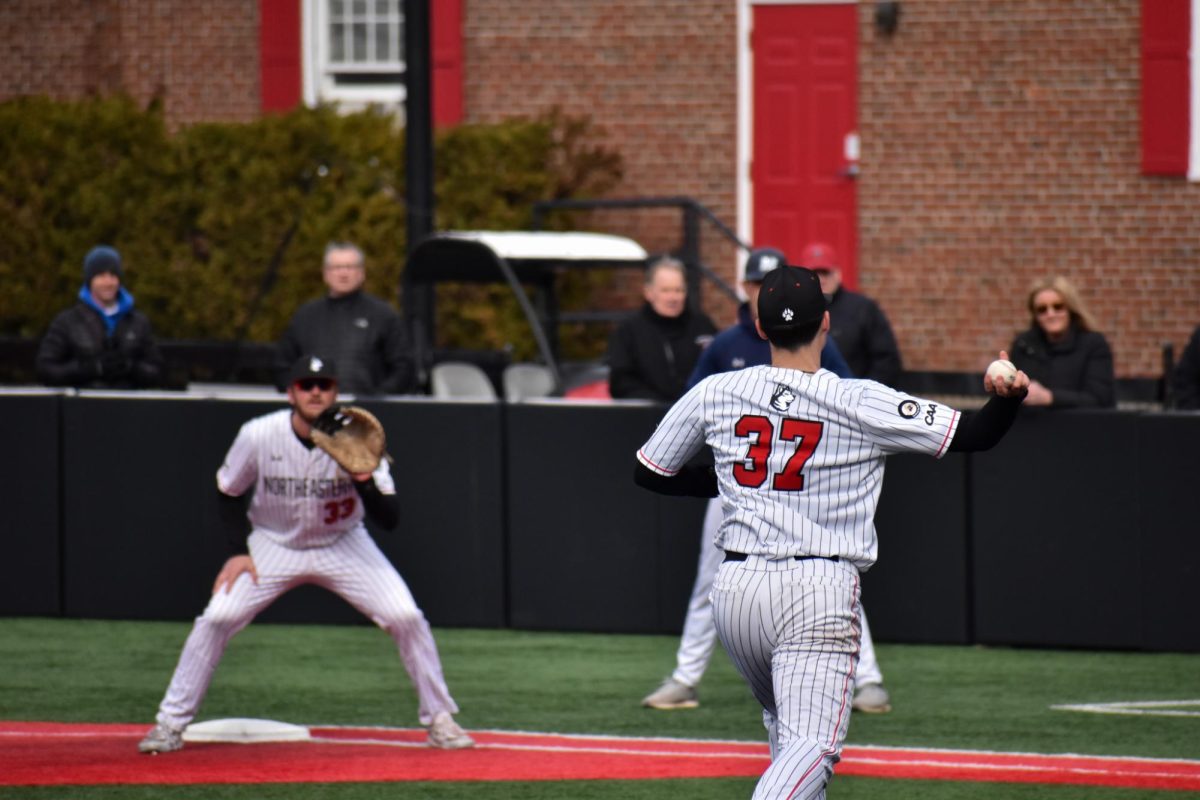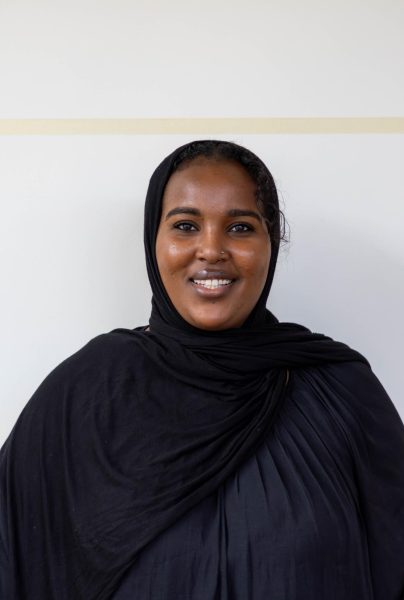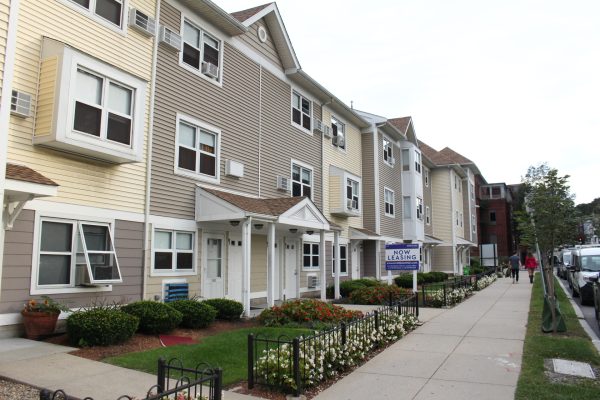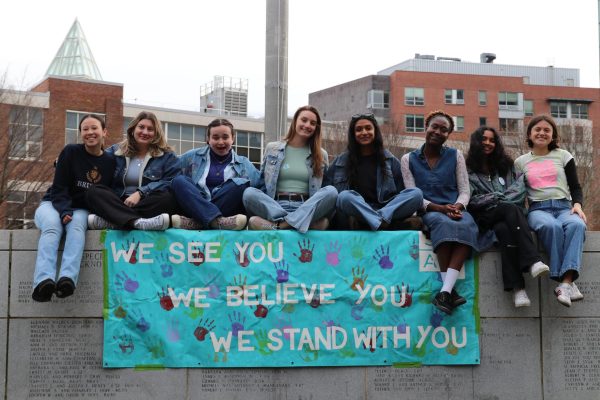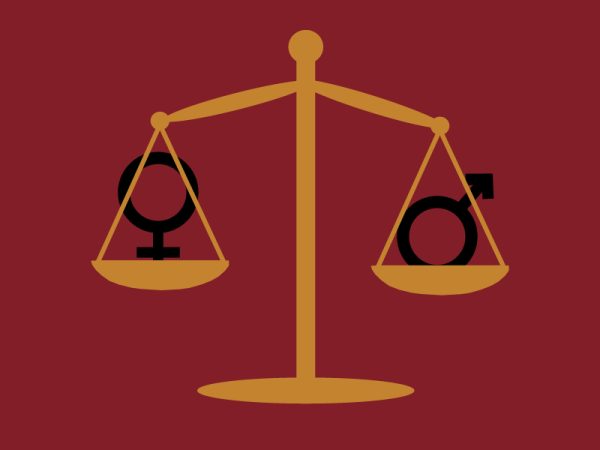Mayor Wu celebrates Boston’s immigrants at “We are Boston 2022: From Dreams to Action”
Boston Mayor Michelle Wu and the Mayor’s Office for Immigrant Advancement, or MOIA, celebrated Boston’s immigrants in “We Are Boston 2022: From Dreams to Action,” an annual event held March 3. Photo courtesy of City of Boston.
March 10, 2022
Boston Mayor Michelle Wu and the Mayor’s Office for Immigrant Advancement, or MOIA, celebrated Boston’s immigrants in “We Are Boston 2022: From Dreams to Action,” an annual event held March 3.
The “We Are Boston” event, hosted this year in partnership with Blue Cross Blue Shield of Massachusetts, a licensed nonprofit private healthcare insurance company, has occurred since 2006 to “celebrate Boston’s rich cultural history” and “contributions immigrants have made to [the] city,” according to Yusufi Vali, the director for MOIA. The ceremony took place via Zoom and Facebook from 6 to 7 p.m. and featured local speakers and performers.
The ceremony officially began with a vibrant lion dance performance by the Boston Chinese Foundation Freemasons to commemorate the Lunar New Year.
Vali opened the event with a speech about empowering the immigrant community in the city.
“The theme of this year’s ‘We Are Boston’ is ‘From Dreams to Action.’ We picked this theme because this is the time for action so immigrant dreams can become reality,” Vali said. “Now more than ever, the impossible seems possible. Together with our nonprofit partners, foundations, corporate sponsors and all of you, we’ve been taking action.”
Vali announced the MOIA granted 20 diverse immigrant-led and immigrant-serving nonprofit organizations $8,000 each for operational support and capacity building to serve immigrants disproportionately impacted by the pandemic. Vali also said the funds will be used for “basic needs assistance, mental health support, child and youth development, legal services and digital equity.”
“We are devastated by what’s happening and the growing humanitarian crisis,” Vali said. “Mayor Wu and Boston stand in solidarity with the people of Ukraine and we support our local Ukrainian and Russian communities.”
Wu then entered the stage and began her speech by expressing gratitude for those around her. Wu, described by Vali as the “epitome of dreams to action,” opened up about what the event meant to her.
“As the daughter of immigrants, I know the vital role that our immigrant families and communities play in making our cities more welcoming, more resilient and more joyful,” Wu said. “I’ve also known my whole life what it feels like to face barriers in moments of need … If we want to build a Boston for everyone, we must do so with our immigrant communities at the heart of our efforts.”
Wu said together with MOIA and several other partners, the mayor’s office is working to make driver’s licenses accessible to undocumented immigrants.
“I am so excited to work together in the coming years to ensure that no matter where you come from or how long you have been in Boston, this is a city that feels like home,” Wu said.
Andrew Dreyfus, president and CEO of Blue Cross Blue Shield of Massachusetts, co-hosted the event with Wu and MOIA.
“Immigrants have always been at the heart of Boston … Mayor Wu understands the city’s diversity is its greatest strength and that the immigrant community is at its core,” Dreyfus said.
Wu awarded this year’s “We Are Boston” honorees to spotlight those whose work supported and uplifted immigrant communities. The Community Champion Award” was awarded to the Asian Community Emergency Relief Fund, a charity comprised of several organizations.
Wu said that the fund supports working class households who suffered devastating effects from the pandemic, such as workers who lost their income and were unable to receive public benefits, especially with the increase in anti-Asian racism. Anti-Asian hate crimes reached unprecedented levels and increased by 339% worldwide in 2021. Since 2020, the fund has raised half a million dollars in direct aid to over 300 families and has benefitted more than 1,000 people.
Angie Liou, executive director of the Asian Community Development Corporation, accepted the award on behalf of the six organizations that created the fund. Liou said in her speech that the fund was created in March 2020, a few weeks after the first cases of COVID-19 appeared in Massachusetts.
“Our six organizations all serve low-income Asian immigrants in our communities and have seen over the past two years how the pandemic has exacerbated the inequities our communities face,” Liou said. “As part of the relief fund, we set up hotlines in Mandarin, Cantonese, Vietnamese and Kamai and work with other Asian community organizations across the region to ensure Asians with limited proficiency and those most in need, could access help.”
Vali acknowledged some of MOIA’s accomplishments the past year, including building its economic integration work to grow immigrant wealth and wages, incorporating vaccination campaigns in five diverse communities and in seven different languages, as well as offering direct cash assistance to around 1,200 immigrant families who faced financial hardship due to the pandemic, regardless of immigration status.
In addition, Vali explained some of the future initiatives of MOIA, including the expansion of legal services to create more pathways to citizenship. Vali said MOIA is interested in expanding social integration for immigration communities, specifically with English for speakers of other languages and mental health.
The ceremony concluded with Catherine Shaw, an eighth-grader who is passionate about creating positive change in her community. Sheread an original poem titled “Blowing Barriers,” which featured a unique twist on “The Three Little Pigs,” to emphasize the importance of equitable healthcare.
“A tree with no roots is like a house with no foundation. Just like a story with one perspective,” Shaw said. “We need to huff, and puff and blow these barriers down. I’m bringing light to this issue because people need high-quality, affordable healthcare. To get there, we need to hear everyone’s stories and make decisions with multiple perspectives in mind.”


